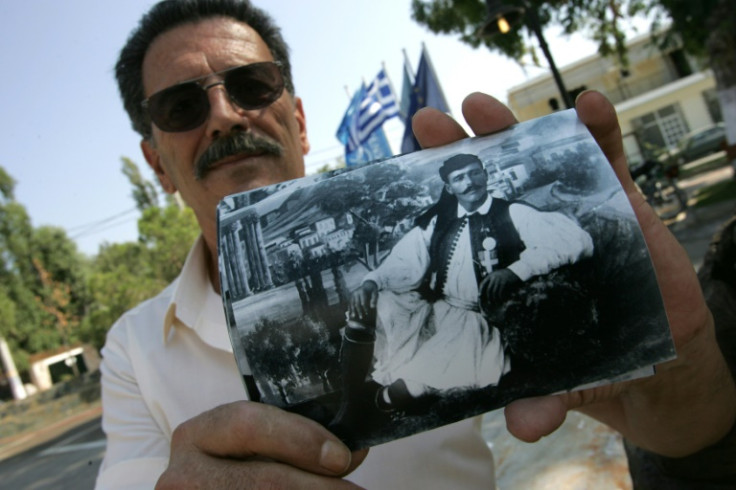Olympic Legends: From Spyridon Louis To Betty Robinson - Part 1

The Paris Olympics will be the 33rd summer edition since the first modern Games in Athens in 1896.
The Games have never failed to produce acts of bravery and brilliance as athletes push themselves in the bid for gold.
AFP looks back over the last 128 years to pick out some of the many Olympic legends.
Spyridon Louis, a Greek shepherd who had served in the army, became a national icon when he won the marathon during the first modern Olympics, held in Athens in 1896.
Louis, who was just 24, completed the 40 kilometre race -- today's distance of 42.2km was not standarised until 1908 -- in 2hr 58min 50sec despite stopping to down a glass of wine half-way through.
Wearing shoes given to him by residents of his village he finished seven minutes ahead of the field.
Greece's Crown Prince Constantine and his brother Prince George joined Louis on his ecstatic final lap in the stadium.
Four decades later Spyros was the flagbearer for the Greek delegation at the 1936 Berlin Olympics.
British tennis pioneer Charlotte Cooper made history when she became the first woman to win an Olympic event at the Paris Games in 1900.
With her attacking flair and deft touch at the net, Cooper, who took to the court in an ankle-length dress, beat home favourite Helene Prevost to win the singles title.
Her feat was all the more remarkable given she could not hear a racquet hitting a ball, having been diagnosed as deaf four years earlier.
She triumphed at Wimbledon too, winning the singles title five times. With the last of those coming in 1908 when she was 37, Cooper remains the oldest women's singles Wimbledon champion.
For almost 60 years the Flying Finns were a force in middle-distance and long-distance running.
The man who symbolised their determination and discipline was Paavo Nurmi, who collected nine golds and three silvers over the three Olympics in the 1920s. Between 1921 and 1931 he set 20 individual world records at distances from 1500m to 20km.
Orphaned at 12, Nurmi discovered his love of running during military service.
Nurmi ran all his races to a strict pace, which he monitored with a stopwatch.
He made history at the sweltering 1924 Paris games, becoming the first (and only) track and field athlete to win five golds in one Olympics, including individual titles in the 1500m and 5000m within two hours of each other. Compatriot Ville Ritola won four golds and two silvers in Paris.
Johnny Weissmuller found fame at the 1924 and 1928 Olympics, dominating swimming to win five golds long before he swung on to the silver screen playing Tarzan.
The Hungarian-born son of German-speaking immigrants to the United Sates, Weissmuller won three of the men's six golds at Paris in 1924 in the 100m and 400m freestyle and 4x200m freestyle relay, adding bronze in water polo.
Weissmuller, who revolutionised swimming with his head-turning breathing and flutter kick, successfully defended the 100m and relay titles four years later in Amsterdam.
He went on to make even more of a splash in Hollywood, and starred in a dozen Tarzan films.
The first woman to win the 100m race at the Olympics and still the youngest champion of the event, Robinson was 16 when she won gold in Amsterdam in 1928.
Her science teacher spotted Robinson's talent watching her chase after a commuter train.
Robinson turned up to the final with two left shoes, only getting hold of a right shoe with moments to spare.
In 1931, she was pronounced dead after being involved in a plane crash but was discovered to be alive when she reached the morgue.
The accident left her unable to fully bend her knee, but she made an extraordinary comeback at the 1936 Berlin Olympics, winning the 4x100m relay, the only race that did not require her to kneel at the start.


© Copyright AFP 2024. All rights reserved.











